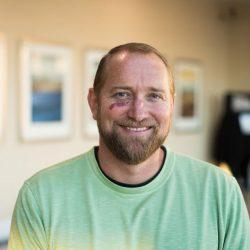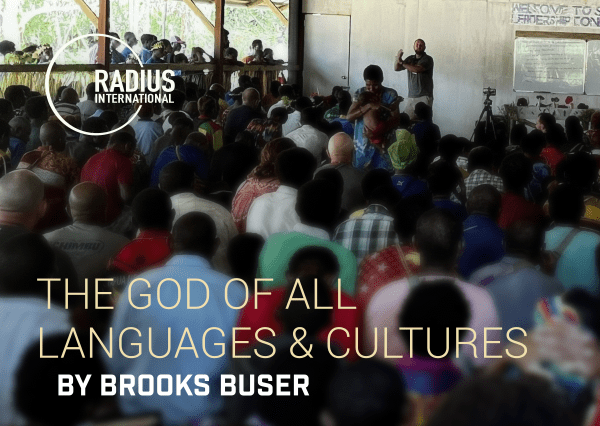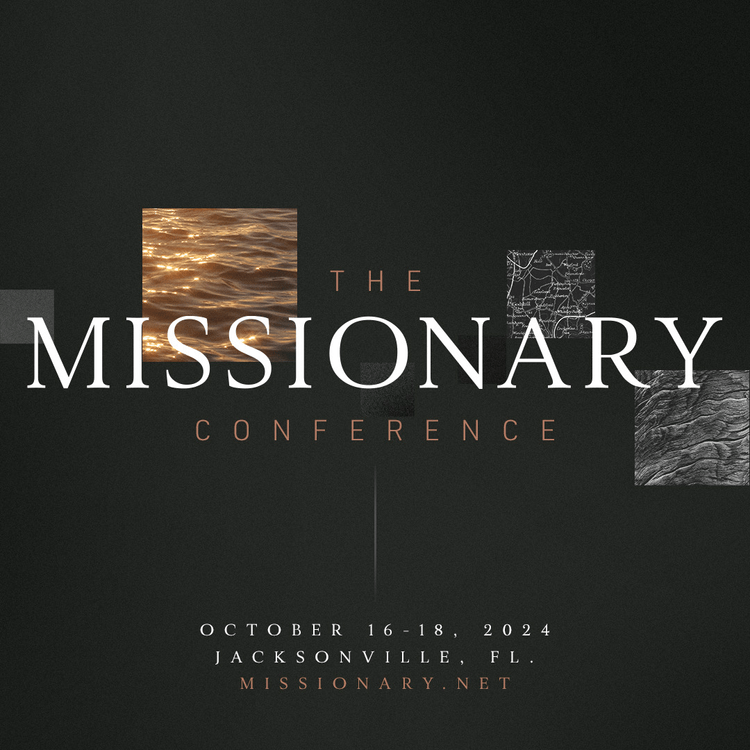As I sit in my seat on JAL Airlines, typing this out while flying home from Papua New Guinea, I am deeply encouraged by the story of God’s people across time, language, and culture, and what unites us over those huge chasms of difference. The last month has been a whirlwind of traveling from St. Louis to Belfast, to Edinburgh, and finally Yembiyembi, Papua New Guinea before heading home. Each leg of the journey has been profitable, but the last two legs have been especially poignant.
As some of you know Radius has been working on a series of 6 short films (45 minutes each with study guides) on 6 pioneer missionaries and themes from their lives. Amy Carmichael and John Paton took me to Belfast and Edinburgh. Before beginning this trip, I re-read the Autobiography of John Paton[1], a top 10 must-read for Christ followers in my humble opinion. But to get a sense of Scotland my wife and I also read about John Knox[2], the St. Andrews Seven[3] (missionaries to India), and Samuel Rutherford. To understand John Paton, you must understand the forces that produced a John Paton. Where did such… moxie, such grit come from? Undoubtedly his family upbringing is a major part of his story. But standing in St. Giles Cathedral and being reminded of how John Knox taught there, the father of the Protestant Reformation in Scotland, how he endured 19 months on a slave ship and held his ground against the Protestant-slaying queen, rightly called “Bloody Mary”, you come away with a fuller picture of the forces that molded John Paton.
That fuller picture is dotted with men and women who believed there were truths, or doctrines, worth dying for. This doggedness, this willingness to bear the full cost of unpopular convictions is something that is rarer in our time. I recently had two veteran missionaries from South Africa ask me if they thought this generation of men (how the men go is how the culture/movements/family/society goes) is up for the challenge. My thought, after seeing the graves of martyrs and sites where hundreds of Protestants were burned at the stake in and around Edinburgh, is this; it depends on who shapes them.
After leaving Edinburgh, my wife and I flew to Papua New Guinea and back to the people group that we worked among for 13 years, the Yembiyembi. That church was hosting its first conference ever and the leaders of 16 other churches from Papua New Guinea hiked, canoed, and flew into our location for 3 days of teaching. Each church that attended had heard the gospel for the first time from a missionary team that learned their language (we used the national language of Papua New Guinea for the conference), taught them how to read and write in their own language, and 9 out of the 16 had translations of the Scriptures in their language. Some were more mature churches, some were less, but everyone who attended understood the grace of God in the person of Jesus Christ because a group of Christians left their homes and took the time to teach them clearly, in their own language.
At night I would meet with the Yembiyembi church elders and one night I told them what I saw in Scotland and the cost that many there had to pay for the gospel in their culture and language. It fascinated me how those stories of people they have absolutely no connection with, other than the gospel, encouraged them but didn’t surprise them. There was no explanation needed as to why the Protestants from centuries ago were willing to die. One of the elders said, “The talk (gospel) is just as true for people of the cold places (everywhere outside Papua New Guinea) as it is for us. Once ones of the ground (humans) have tasted the sweet and true talk they are willing to carry all variety of heavies (burdens) for the name of Great One (Lord). The Scotland ones swallowed (believed) the true talk and it carried them well.”
Let me summarize three key takeaways from the Christians that represent Edinburgh, Scotland and Yembiyembi, Papua New Guinea.
Our God is Worthy of our Pain
One commonality that is often observed by church historians is that when the gospel advances into new areas it rarely does so without serious cost. It is no coincidence that as the church multiplied and spread (yes, the advance of the gospel IS the advance of the church) throughout the book of Acts the cost to the followers of Christ was tremendous. Stephen, Paul, the church in Smyrna, and countless others testify to this immutable transaction; pain and earthly suffering are the down payment of the King’s name being heralded and believed upon in new lands and new tongues. And here’s the thing that very few people recognize, much of that pain and death will go unheralded until the King returns.
On one of our recent filming trips for these six pioneer missionaries, our travels took us to Oxford University. On one of the side streets to the university is the site where Hugh Latimer, Nicholas Ridley, and Thomas Cranmer were burned at the stake for their beliefs. What was tough for me to handle was that it’s a small spot of bare brick in the middle of an asphalt street, and it has no guard rails, no protection, no explanation other than a small plaque that is yards away on a wall. As I stood there remembering how Latimer steeled Ridley when they went to the flames together a group of people with muddy shoes walked right over it. There was no recognition of where their feet fell and the cost that had been paid on that small patch of bricks.
The cost of the gospel penetrating a language and culture, and the true church growing, will invariably be measured in sweat, pain, and blood. Few on this side of heaven will know of those costs outside of family and fellow church members. But the One who holds the world in His hands and who does not allow a single sparrow to fall to the ground without His permission knows all these things, and someday His true and full accounting will be all that matters.
Theology Matters
A literal translation of the theme that was chosen for the conference in Yembiyembi was “The Big Thinking of God is for His Name to be ‘Upped’ in All Ways,” or more clearly for English speakers; “The Chief Aim of God is His Own Glory in All Things.” I must admit that when I first saw the theme I wondered if John Piper had been invited to our conference and why such a “Big” topic was the theme. Why not “The 10 Marks of a Godly Elder” or “How the Church Matures in the Early Years” or something that could be more…lower shelf. After all, these were new churches relatively speaking and they still wrestle with “new church issues”. But as the conference went on the two primary speakers (two Papua New Guinea pastors) kept pressing the need to know the “root of the talk” and then all other things would find their right place.
They were right! Marriage, Parenting, being a good church member, being a good church leader all find their right place AFTER a right understanding of God. The practicality of our walk with God and leadership of the church must be fleshed out, but the “root of the talk” is primary to all followers of Christ. While the statement “Doctrine divides, Jesus unites” is catchy, it’s absolute junk. Right doctrine unites around the right things, and right doctrine will see a church, one that is 15 years old (Yembiyembi) and one that is hundreds of years old, persevere in its faith and practice till our Lord returns.
Finishing is Non-Negotiable.
On the final day of the conference in Yembiyembi one of the attendees pulled me aside and I was caught off guard as his eyes started watering. I knew he was from a people group that the missionaries had pulled out of way too early (portions of the books of the Bible translated but none completed, only taught through some Old Testament portions and the gospels but nothing more) and left an anemic gathering that was dying a slow death. This brother proceeded to tell me that he had heard that I lead a school that trains missionaries. Would any of them be willing to come to his location and finish what was left undone? He was witnessing church leaders that knew the “full talk” but the group he was a part of was still “walking like children.” I told him that I would pass on his request and would pray fervently that someone would come to their location in the coming years.
Finishing looks different for each member of the people of God. For some it’s the necessity to stay and translate the Bible and teach the scriptures till a mature church is planted, for others it will be to hold fast to the truth till their body succumbs to the flames, or cancer, or old age. But for many it will be the life of a faithful church member, a godly mother of children, a dad who makes church the priority for his kids over their potential sports schedule, to be a teacher who doesn’t blush over his Christianity…even when they take your job away, this will be the measure of “finishing well.” May each of us finish well the race we have been given, no matter the cost.
This recent trip to Edinburgh and Yembiyembi has made me long for heaven. I want John Knox to meet Malaks of the Cassowary clan, I want to hear how John Paton and the believers of Aniwa interact with the members of the Inaru church and so many other meetings that will be sweet to see and be a part of. The people of God are separated by centuries, languages, and geography while we are chained to this earth, but the day is rapidly approaching when all of those things will be swept aside and the Sovereign Lord of the universe will make all things new again. Oh, for that day.
[1] https://banneroftruth.org/us/store/history-biography/john-g-paton/
[2] This is a very short and readable introduction to the man.
[3] Another very short and readable book about these extraordinary 6 and their teacher

Brooks Buser
President of Radius International
Brooks and his wife Nina planted a church among the Yembiyembi people in Papua New Guinea. Now Brooks serves as the president of Radius International, training future church planters.




